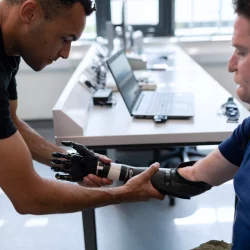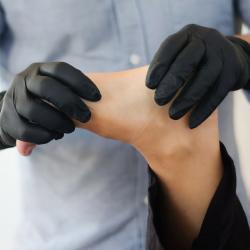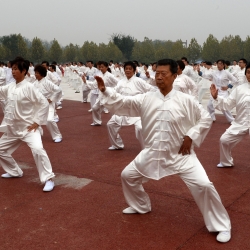How Much Compensation Do You Get for Slipping on a Wet Floor?
Slip and fall accidents are a common occurrence and can happen to anyone, anywhere. These accidents often result in injuries that range from minor bruises to severe fractures or head trauma. Understanding the potential compensation for such incidents is crucial, especially when the injuries lead to significant medical expenses and loss of income. This article aims to provide a comprehensive overview of the factors that influence the amount of compensation you might receive if you slip on a wet floor.
Understanding Slip and Fall Accidents
Slip and fall accidents occur when a person loses their footing due to a slippery or uneven surface, resulting in a fall. Common causes include wet floors, uneven pavements, loose rugs, and poor lighting. These accidents frequently happen in places like grocery stores, restaurants, and public sidewalks. Legally, slip and fall cases fall under premises liability, which holds property owners and managers responsible for maintaining a safe environment for visitors.
Factors Influencing Compensation Amounts
Severity of Injuries
The severity of injuries sustained in a slip and fall accident plays a significant role in determining compensation. Minor injuries such as sprains or bruises may result in lower compensation, while severe injuries like broken bones, spinal cord injuries, or traumatic brain injuries can lead to substantial settlements. The more severe the injury, the higher the medical costs and the greater the impact on the victim’s quality of life, thereby increasing the compensation amount.
Medical Expenses
Medical expenses are a primary factor in calculating compensation. This includes immediate medical costs such as emergency room visits, surgeries, and hospital stays. Additionally, ongoing and future medical expenses, such as physical therapy, medications, and follow-up appointments, are also considered. Comprehensive documentation of all medical expenses is crucial for maximizing compensation.
Lost Wages and Earning Capacity
When a slip and fall accident results in time off work, lost wages become a critical component of the compensation claim. This not only includes the income lost during the recovery period but also considers any long-term impact on the victim’s earning capacity. If the injury leads to a permanent disability that prevents the victim from returning to their previous job or reduces their ability to work, the compensation will account for this loss of earning potential.
Pain and Suffering
Pain and suffering refer to the physical pain and emotional distress experienced by the victim due to the accident. Unlike medical expenses and lost wages, pain and suffering are non-economic damages, making them more challenging to quantify. Courts and insurance companies use various methods to calculate these damages, often considering the severity of the injury, the duration of recovery, and the long-term impact on the victim’s life.
Liability and Negligence
Establishing liability and negligence is essential for a successful slip and fall claim. The victim must prove that the property owner or manager was negligent in maintaining a safe environment. This could involve showing that the owner knew or should have known about the hazardous condition and failed to address it. In some cases, the victim’s own negligence may be considered, leading to a reduction in the compensation amount based on comparative negligence laws. For more information on slip and fall cases, especially those occurring in specific venues like restaurants, you can refer to this detailed guide on slip and falls at chicken wing restaurant.
Legal Process for Slip and Fall Claims
Reporting the Incident
The first step in the legal process for a slip and fall claim is reporting the incident. It is crucial to report the accident to the property owner or manager as soon as possible. Timely reporting ensures that the incident is officially documented, which can be vital evidence in your case. Be sure to obtain a copy of the incident report and keep detailed records of all communications.
Gathering Evidence
Gathering evidence is essential to support your claim. This includes taking photographs of the accident scene, the hazardous condition that caused the fall, and your injuries. Collecting witness statements can also be invaluable, as they can provide an unbiased account of the incident. In some cases, expert testimony may be necessary to establish the property owner’s negligence.
Filing a Claim
Once you have gathered sufficient evidence, the next step is filing a claim. This involves submitting a formal complaint against the property owner or their insurance company. The complaint should detail the circumstances of the accident, the injuries sustained, and the compensation sought. It is advisable to consult with a legal professional to ensure that your claim is comprehensive and accurately reflects your damages.
Negotiating a Settlement
Many slip and fall cases are resolved through negotiating a settlement rather than going to trial. During the negotiation process, both parties will discuss the evidence and attempt to reach an agreement on the compensation amount. Factors such as the strength of the evidence, the severity of the injuries, and the willingness of the parties to compromise will influence the settlement negotiations. A successful negotiation can save time and legal expenses.
Going to Trial
If a settlement cannot be reached, the case may proceed to trial. During the trial, both parties will present their evidence and arguments before a judge or jury. The trial process can be lengthy and complex, but it provides an opportunity for a fair resolution if settlement negotiations fail. Understanding what to expect during the trial can help you prepare and increase your chances of a favorable outcome.
Case Studies and Examples
Examining case studies and examples of slip and fall accidents can provide valuable insights into the compensation process. For instance, a case involving a severe injury due to a wet floor in a grocery store might result in a substantial settlement to cover medical expenses, lost wages, and pain and suffering. On the other hand, a minor injury in a similar scenario might result in a lower compensation amount. Analyzing these cases can help you understand the potential outcomes and set realistic expectations for your own claim.
Conclusion
In summary, the compensation you receive for slipping on a wet floor depends on various factors, including the severity of your injuries, medical expenses, lost wages, pain and suffering, and the property owner’s liability. Understanding the legal process and gathering comprehensive evidence are crucial steps in pursuing a successful claim. By being well-informed and prepared, you can maximize your chances of receiving fair compensation for your injuries and losses.







